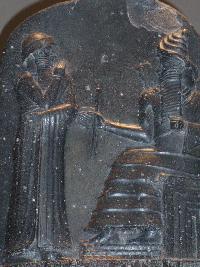Krik? Krak! or The Untranslatability of Cultural Traditions Thread poster: CHENOUMI (X)
|
|---|
CHENOUMI (X) 
English to French
+ ...
http://www.proz.com/kudoz/483096 In this question, you will have an idea how difficult it is to translate the cultural aspect of a language.
Creole is one of the most difficult languages to translate from since its culture is so unique and rich.
Zonbi is the most famous and universally adopted Creole word. Although it has retaine... See more http://www.proz.com/kudoz/483096 In this question, you will have an idea how difficult it is to translate the cultural aspect of a language.
Creole is one of the most difficult languages to translate from since its culture is so unique and rich.
Zonbi is the most famous and universally adopted Creole word. Although it has retained its figurative connotation as a creolism in other languages, its original meaning: "someone who has been violently poisoned and deprived of his vital functions" cannot be properly translated since the phenomenon of "zombification" is so distinctive of "vodun" practices. Note: I don't know anything about it since I was born and raised Catholic.
I'm curious to know if in other cultures, there is a similar way to start a storytelling.
Have a nice week!

[Edited at 2003-07-20 19:03] ▲ Collapse
| | | | | Oral Traditions... | Jul 20, 2003 |
ALL cultures are unique and rich...in reference to "Krik" and "krak", what you're talking about really is the assumed (I say, assumed, only because this has not been definitively proved yet) intranslatability of oral cultures in a written medium (subtitles/the written word, etc.) simply because it requires two types of translation (in view of Jakobson's three kinds of translation-1969) - intersemiotic ("an interpretation of verbal signs by means of nonverbal sign systems") to turn the oral into ... See more ALL cultures are unique and rich...in reference to "Krik" and "krak", what you're talking about really is the assumed (I say, assumed, only because this has not been definitively proved yet) intranslatability of oral cultures in a written medium (subtitles/the written word, etc.) simply because it requires two types of translation (in view of Jakobson's three kinds of translation-1969) - intersemiotic ("an interpretation of verbal signs by means of nonverbal sign systems") to turn the oral into the written and then interlingual translation (i.e. translating it into another language).
Of course in a culture with a great oral tradition (and these are dying everywhere), storytelling is a performance like theatre and requires "stage directions" (there is gesticulation and other movement to add to the flavour of the story) and direct audience response...these features may be intranslatable as they vary from culture to culture. Storytelling however seems quite universal. The written word in itself (and TV(!) of course) are corrupting the fine art of storytelling, yet many features (such as the classic "once upon a time") have their equivalents in many cultures. In fact, the "templates" for folktales (i.e. the themes and developments of the stories studied in folklore studies) are similar in many cultures...take for example the incredibly famous and not really so Arabic 1001 Nights(of course the tales are orally narrated)...it is said to have originated from the Indian "Panchatantra", five moral stories that (at least my personal experience) are still told to Indian children when they are young)...also a famous character in oral narration in the east, Mullah Nasruddin (brought into print in English by Idris Shah), is famous throughout the Middle East as Juha and is known in India as Gopal...I have heard that he (he's a village idiot) also exists in Italian and Greek folk culture. So as far as oral traditions (which I assume is largely what you're talking) and cultures are concerned, the problem, in my view, is not just translation but other factors too, and to be able to translate oral cultures in the first place, one must have a very good understanding of these other factors. Fairy tales as written in European languages by Charles Perrault and the Grimm (grim by name, grim by nature- the tale I mean!) brothers had oral origins too and performance such as that required in Creole story telling. Nowadays, often when "ethnic" folktales are compiled in written books, the authors (whether translators or not) try to keep the oral style of the original, but really it's the orality more than anything else that is sacrificed. It's like going to a poetry reading and reading a poem quietly to yourself...not quite the same thing.
For a fantastic translation perspective on the translation of oral genres (in this case, folktales), I suggest you get a hold of Ibrahim Muhawi and Sharif Kanaana's "Speak, Bird, Speak Again", a collection of translated Palestinian folktales, where Dr Muhawi, a translator and a folklore studies specialist writes a fantastic introduction to the issues of translating oral literature into a written medium. It is also fascinating because it deals with a non Indoeuropean language and culture...thus the cultural gap is further widened...the stories are also charming and a fascinating introduction to a culture that is being eroded through political and historical circumstance.
Happy reading, and I hope this is kind of the lines you were thinking along , ,
Have a good Sunday,
Aisha ▲ Collapse
| | | | CHENOUMI (X) 
English to French
+ ...
TOPIC STARTER | Here we go! Part I :-) | Jul 20, 2003 |
ALL cultures are unique and rich...
... Indeed! And that's one of the most fascinating puzzles of human creation. How can there be so many countries, so many cultures and ethnicities and such a distinctive richness for each one of them? I have been fortunate to travel a lot and have been exposed to multiculturalism very young before the word became trendy. One reason why I enjoy travelling so much is that it affords me with the opportunity to discover other cultures. I find immense pleasure in that.
When I'm in a foreign country, no details escape me. My natural curiosity keeps me alert and drives me to ask questions about everything. I enjoy every moment of my cultural immersion to the FULLEST!
I am stopping here because I don't want to go astray...
Back to the subject at hand:
in reference to "Krik" and "krak", what you're talking about really is the assumed (I say, assumed, only because this has not been definitively proved yet) intranslatability of oral cultures in a written medium (subtitles/the written word, etc.)
Yes, it's assumed that many aspects of oral traditions are difficult to render into other languages where a similar concept or tradition does not exist. The assumption can be proven. Here's the best way to substantiate it: I invite you to go to the "Untranslatable" section of my glossaries on my profile page. Whenever possible, I have provided a cultural explanation and/or definition for some given words. Try to come up with an English translation. If you fail to do so, their unstranslatability will then become self-evident.
The written word in itself (and TV(!) of course) are corrupting the fine art of storytelling, yet many features (such as the classic "once upon a time") have their equivalents in many cultures.
"Once upon a time" actually starts the narrative style. John mentioned it as a remote alternative, for translating Krik?/Krak!, but is, in no way, similar to the short dialogue initiated by the storyteller. The exchange Krik?/Krak! is purely an interactive manner of telling a story and making it interesting. First, the storyteller says "Krik?" Have you noticed the punctuation mark? It's an interrogation. He tries to test the waters by implicitly asking the audience "Are you ready?" - I'm paraphrasing here - That's not the question actually asked but the contextual meaning of Krik. The audience, eagerly expecting the story, will then respond enthusiatically "Krak!" (Exclamation mark). By the way, depending on the intonation in which the storyteller says "Krik", children will respond in the same manner. If he says a quick KRIK, they'll say likewise: KRAK; but if he starts stressing it: "Kriiik", they'll also prolong their "Kraaak".:)
I've to run, but will come back for Part II!
Sandra:)
[Edited at 2003-07-24 07:50]
| | | | DGK T-I 
United Kingdom
Local time: 13:31
Georgian to English
+ ...
| And yet translation must of necessity include thinking the unthinkable, doing the impossible and.... | Jul 21, 2003 |
....and, well, translating the untranslatable - and by and large we all make shift to do this by finding some sort of insight. Someone said in another thread (something like) translating literature faithfully from one language into another is impossible - and it is satisfying and important to attempt it anyway. I think that sums up what we all do (without necessarily defining translation as translation into one word). It's an inter... See more It's an inter... See more ....and, well, translating the untranslatable - and by and large we all make shift to do this by finding some sort of insight. Someone said in another thread (something like) translating literature faithfully from one language into another is impossible - and it is satisfying and important to attempt it anyway. I think that sums up what we all do (without necessarily defining translation as translation into one word). It's an interesting discussion about Creole though. It's an interesting discussion about Creole though.
Best wishes
Giuli
[Edited at 2003-07-22 13:10] ▲ Collapse
| | |
|
|
|
CHENOUMI (X) 
English to French
+ ...
TOPIC STARTER | We can always adapt, explain, and | Jul 24, 2003 |
make analogies.
Someone said in another thread (something like) translating literature faithfully from one language into another is impossible - and it is satisfying and important to attempt it anyway.
Sure. Otherwise, many good foreign literature pieces would remain unheard of. Thanks for your input.
Got to run again,
Sandra
| | | | John Speese 
United States
Local time: 08:31
German to English
+ ...
That's true, Sandra. When I started learning Creole, I noticed right away just how much Vodoun influences the language, whether one is a believer or not. A lot of proverbs, in which your language has an incredible richness, are based on Vodoun and unless you know something about it you won't get the meaning (Timoun frekan grandi anvan Bawon=an obnoxious kid grows up with the Baron watching him). Politics has also influenced the language a lot, and unless you know a little bit of Haitian histor... See more That's true, Sandra. When I started learning Creole, I noticed right away just how much Vodoun influences the language, whether one is a believer or not. A lot of proverbs, in which your language has an incredible richness, are based on Vodoun and unless you know something about it you won't get the meaning (Timoun frekan grandi anvan Bawon=an obnoxious kid grows up with the Baron watching him). Politics has also influenced the language a lot, and unless you know a little bit of Haitian history, these references are obscure too. Thanks for your support of my answer.
CHENOUMI wrote: http://www.proz.com/kudoz/483096 In this question, you will have an idea how difficult it is to translate the cultural aspect of a language. Creole is one of the most difficult languages to translate from since its culture is so unique and rich. Zonbi is the most famous and universally adopted Creole word. Although it has retained its figurative connotation as a creolism in other languages, its original meaning: "someone who has been violently poisoned and deprived of his vital functions" cannot be properly translated since the phenomenon of "zombification" is so distinctive of "vodun" practices. Note: I don't know anything about it since I was born and raised Catholic. I'm curious to know if in other cultures, there is a similar way to start a storytelling. Have a nice week!  [Edited at 2003-07-20 19:03] ▲ Collapse
| | | | | mistikri - mistikrak | Aug 12, 2003 |
Salut
Not all words need to be translated – some cannot. Some can be transcribable, but if there is no cultural equivalent, whether it is translatable or not it still needs to be explained – just like a jargon needs to be explained to the non-specialist – in a footnote. Words, expressions or interjections that are exclusive to a culture, a religion or a jargon cannot always be translated in a satisfactory way because the same thing does not exist in the other language's cultur... See more Salut
Not all words need to be translated – some cannot. Some can be transcribable, but if there is no cultural equivalent, whether it is translatable or not it still needs to be explained – just like a jargon needs to be explained to the non-specialist – in a footnote. Words, expressions or interjections that are exclusive to a culture, a religion or a jargon cannot always be translated in a satisfactory way because the same thing does not exist in the other language's culture. In many cases such words with no perfect equivalent are the words that end up being borrowed by the other language, sometimes with a possible spelling adaptation to ease prononciation in the other language. « Un zombie » is used in French, « un houngan » can be used in French. I have equivalent words and even translations for a couple of your untranslatable words as well.
Krik Krak is an interjection made up of two onomatopeas – per definition they cannot be translatable. These are no « words », they are sounds and on top of that they are specific to creole cultures. Krik Krak is « translatable/transcribable » in French for the onomatopea sounds are the same. There is only a small spelling change but the prononciation is the same : « Cric ? crac ! ». A good example of its use can be heard in the very good movie Rue Cases-Nègres (Sugar Cane Alley) based on the novel by Joseph Zobel (Martinique).
As you say "Krik? Krak!" represents the call and response of after-supper storytelling : krik? is the call asking if anyone has a story to tell, and krak! is the reply.
In French creole same thing but "francisé/frenchized" : Cric-crac (Ye cric-ye crac!) - it is interjection that introduces and gives a rhythm to what the story-teller is saying. : Cric-crac (Ye cric-ye crac!) - it is interjection that introduces and gives a rhythm to what the story-teller is saying.
It is like an « opening » expression for an exchange of conversation. Stories are introduced by krik/krak and riddles are introduced by timtim/bwa sèch. Coincidentally, but rather not, « bwa sech » means dry wood and cric / crac are the onomatopeas corresponding to the noise that dry wood makes when you break it or when you step on it. Like when you are trying to hide and you step on a dead branch and you betray your presence or make other people aware of it.
Krik-krak (cric-crac)
é krik - é krak
mistikri - mistikrak
misyé krik, misyé krak
These are different formulas to initiate and/or start story-telling. The story-teller uses it as an introduction to take his/her turn in the round of story-tellers. It is also used to keep the gathering/evening lively and make the audience participate.
Jean-Luc
[Edited at 2003-08-12 04:30]
[Edited at 2003-08-12 04:31] ▲ Collapse
| | | | CHENOUMI (X) 
English to French
+ ...
TOPIC STARTER | Un francophone parmi nous ! | Aug 13, 2003 |
I welcome your participation in this thread, Jean-Luc, as such occurrence by French-speaking ProZians is otherwise extremely rare. I've always wondered BTW, why they abstain from taking part in English fora.
Your efforts, research and natural curiosity never cease to amaze.
JLDSF wrote:
I have equivalent words and even translations for a couple of your untranslatable words as well.
Meanwhile, I'm intrigued by your findings. Can you tell me which words you believe you have an approximate translation for and in which language. You may send me the info via e-mail, and I'll confirm whether you are right or not in your assumptions.
1. Krik Krak is an interjection made up of two onomatopeas – per definition they cannot be translatable. These are no « words », they are sounds and on top of that they are specific to creole cultures. Krik Krak is « translatable/transcribable » in French for the onomatopea sounds are the same. There is only a small spelling change but the prononciation is the same : « Cric ? crac ! ». A good example of its use can be heard in the very good movie Rue Cases-Nègres (Sugar Cane Alley) based on the novel by Joseph Zobel (Martinique).
Right on! Martinique Creole shares some common traits with Haitian Creole, and has been influenced by HC, according to some sociolinguists.
2.It is like an « opening » expression for an exchange of conversation. Stories are introduced by krik/krak and riddles are introduced by timtim/bwa sèch.
Perfect observation/discovery on your part. The last two words are used in HC to introduce riddles:
- Timtim
> Bwa chèch (Notice the phonetic modification: the 's' consonant becomes a double consonant 'c' + 'h'.)
As you probably know, Martinique and Guadeloupe, have a Creole much more "francisé", hence the originality of HC, which currently stands as the richest French-based creole, being spoken around the world.
3. é krik - é krak
mistikri - mistikrak
misyé krik, misyé krak The difference for this form of Creole is in writing: the "accent aigu" is only uttered by HC speakers, but not reflected in writing. I can appreciate the parallel you have established.
Thanks for sharing your view on the subject. As usual, your input has been valuable.
Sandra
[Edited at 2004-01-27 17:18]
| | |
|
|
|
Ulvija Tanovic (X)
Local time: 14:31
English to Bosnian
+ ...
| try to find equivalents | Sep 4, 2003 |
I suppose this does not apply to translating Creole to English, because they differ so much in terms of culture. But, if you're translating within a language family or group, you can often find surprisingly adequate equivalents.
For example:
English nursery rhymes - souds completely untranslatable doesn't it?
However, in Bosnian there is an equivalent for "Ring Around the Roses". Far from being a direct translation, it is not even a retelling, no roses are... See more I suppose this does not apply to translating Creole to English, because they differ so much in terms of culture. But, if you're translating within a language family or group, you can often find surprisingly adequate equivalents.
For example:
English nursery rhymes - souds completely untranslatable doesn't it?
However, in Bosnian there is an equivalent for "Ring Around the Roses". Far from being a direct translation, it is not even a retelling, no roses are mentioned, or tissues (for some reason, it deals with ducks and eggs), but it has approximetely the same length, rhythm and rhyme and it is played out in the same way (children hold hands, spinning in a circle and "fall down" at the end). ▲ Collapse
| | | | Jack Doughty 
United Kingdom
Local time: 13:31
Russian to English
+ ...
In memoriam | Ulvija Tanovic (X)
Local time: 14:31
English to Bosnian
+ ...
| reply to Jack | Sep 5, 2003 |
I know about the plague reference in the English original, but I cannot discern anything of the sort in the Bosnian version.
It might however have something to do with famine, or hard times, because it mentions the "raja" which is yet another "untranslatable" term meaning the common folk (or something akin to the groundlings in Shakespeare's Globe Theatre) and somebody bringing eggs and dropping one and all the children rushing to pick it up.
| | | | MJ Barber 
Spain
Local time: 14:31
Spanish to English
+ ...
|
|
|
| Oral Translations & Glosses | Jan 15, 2004 |
I'm not a professional translator, but my field of study is Native American linguistics, so I'm quite intrigued by the issue of translating Oral texts into written form.
My problem that i see is two fold. The first being that most oral "tellings" involve a highly structured cadence or form - something often missed by someone outside of the culture. This cadence reflects certain presumptions for the audience about the type of story, as well as the attitudes of the story t... See more I'm not a professional translator, but my field of study is Native American linguistics, so I'm quite intrigued by the issue of translating Oral texts into written form.
My problem that i see is two fold. The first being that most oral "tellings" involve a highly structured cadence or form - something often missed by someone outside of the culture. This cadence reflects certain presumptions for the audience about the type of story, as well as the attitudes of the story teller. I have never seen adequate representation of cadence and form, even when the speaker is speaking in English... much less when the scribe is also a translator, or is scribing through a translator. I have read a few academic comments about how to represent
cadence, voice, inflection, and as one of you pointed out, even gestures. But i'd be curious what people here have tried - and if they felt it succeeded or failed.
One other challenge i see; again, one that was brought up here, is handling the untranslatable and the nature of Glossing. My concern (working with languages that are generally endangered) is that the original "untranslatable word" eventually, and even "quickly" actually becomes so tightly associated with the gloss it loses the meaning of the original word.
"Wakan Tanka" from Lakota is a good example. It has generally been translated as "great spirit" "great sacred" and simply "god" (the most literal translation being "large/great
power/powerful/sacredness - i'm trying to avoid "thing" here - this is why you all are the translators, grin). But the term "great spirit" quickly caught on, and now, even among native speakers, there is a tendency to interpret "Wakan Tanka" as great spirit - implying in the "new" interpretation, a more deity like "thing".
I guess my point is that I want to encourage a hesitation on the part of translators, before they assume that Glossing a word (leaving it in it's original form but footnoting a meaning) is the best way to preserve the native/natural meaning. sometimes, it's got the unintentional effect of literally CREATING a new meaning in the Source language. ▲ Collapse
| | | | Ouadoud 
Local time: 15:31
English to Arabic
+ ...
| I met similar hard stones.. | Jan 27, 2004 |
Very interesting thread.
I met tough challenges when I was working on a touristic guide book (in Italian) to my country, Tunisia.
The toughest was when I had to deal with cooking, recipes and .. natural cosmetics.
Most of the info I had was in Arabic (+ in Tunisian dialect) and many words were bizarre even to ordinary Tunisians.. The only reasonable solution was to translate some words by whole sentences and reproduce them phonetically in Italian (and italic), con... See more Very interesting thread.
I met tough challenges when I was working on a touristic guide book (in Italian) to my country, Tunisia.
The toughest was when I had to deal with cooking, recipes and .. natural cosmetics.
Most of the info I had was in Arabic (+ in Tunisian dialect) and many words were bizarre even to ordinary Tunisians.. The only reasonable solution was to translate some words by whole sentences and reproduce them phonetically in Italian (and italic), considering that my major concern was communicating as clearly as possible the original recipe or product.
Salaam,
Ouadoud ▲ Collapse
| | | | To report site rules violations or get help, contact a site moderator: You can also contact site staff by submitting a support request » Krik? Krak! or The Untranslatability of Cultural Traditions | TM-Town | Manage your TMs and Terms ... and boost your translation business
Are you ready for something fresh in the industry? TM-Town is a unique new site for you -- the freelance translator -- to store, manage and share translation memories (TMs) and glossaries...and potentially meet new clients on the basis of your prior work.
More info » |
| | Wordfast Pro | Translation Memory Software for Any Platform
Exclusive discount for ProZ.com users!
Save over 13% when purchasing Wordfast Pro through ProZ.com. Wordfast is the world's #1 provider of platform-independent Translation Memory software. Consistently ranked the most user-friendly and highest value
Buy now! » |
|
| | | | X Sign in to your ProZ.com account... | | | | | |











